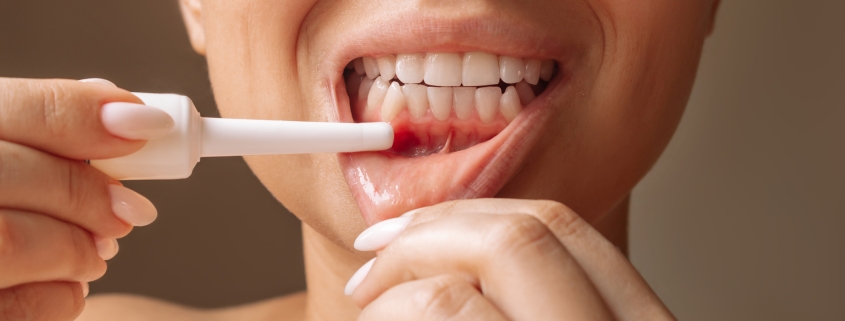Gum Ulcers, Causes, Symptoms, and Treatment Options
Gum ulcers, also known as mouth ulcers or canker sores, are common painful sores that can develop on the gums, lips, tongue, or other soft tissues inside the mouth. While they can be uncomfortable and disruptive, most gum ulcers are benign and heal on their own within a week or two. In this article, we will explore the causes, symptoms, and treatment options for gum ulcers to help you understand and manage this condition effectively.
Causes of Gum Ulcers
The exact cause of gum ulcers is not always clear, but several factors can contribute to their development:
Trauma or Injury: Accidental biting of the cheek or tongue, vigorous brushing, or dental procedures that irritate the gums can lead to the formation of ulcers.
Oral Hygiene: Poor oral hygiene, including inadequate brushing and flossing, can create an environment that promotes the growth of bacteria and increases the risk of gum ulcers.
Nutritional Deficiencies: A lack of essential nutrients like vitamin B12, iron, or folate in the diet can weaken the immune system and make the gums more susceptible to ulcers.
Hormonal Changes: Hormonal fluctuations during menstruation or pregnancy can contribute to the development of gum ulcers in some individuals.
Stress and Emotional Factors: High levels of stress, anxiety, or emotional distress can weaken the immune system and increase the likelihood of gum ulcers.
Symptoms of Gum Ulcers
Gum ulcers are typically small, round or oval-shaped sores that can appear red, white, or yellowish. Common symptoms include:
Pain and Discomfort: Gum ulcers can be tender and painful, particularly when eating, drinking, or brushing teeth.
Irritation and Sensitivity: The affected area may feel sensitive or irritated, making it uncomfortable to touch or brush.
Difficulty Eating or Speaking: Severe gum ulcers can make it challenging to eat or speak, especially if they are located in areas that come into contact with food or the tongue.
Swelling and Inflammation: The surrounding gums may appear red and swollen, indicating inflammation.
Treatment Options for Gum Ulcers
While most gum ulcers heal on their own within one to two weeks, there are several treatment options that can help alleviate discomfort and promote healing:
Over-the-Counter Gels and Rinses: Topical gels or mouth rinses containing anesthetic or anti-inflammatory agents can provide temporary pain relief and help reduce inflammation.
Oral Pain Relievers: Over-the-counter pain relievers, such as acetaminophen or ibuprofen, can help manage pain and reduce inflammation. Follow the instructions on the packaging and consult a healthcare professional if needed.
Saltwater Rinse: Gently rinsing the mouth with warm saltwater several times a day can help cleanse the ulcers and promote healing.
Avoiding Irritants: Avoiding spicy, acidic, or rough-textured foods that can further irritate the ulcers is recommended. Also, use a soft-bristle toothbrush and practice gentle oral hygiene to prevent additional trauma.
Nutritional Supplements: If nutritional deficiencies are suspected, consider incorporating a balanced diet or taking supplements under the guidance of a healthcare professional.
Stress Management: Implement stress reduction techniques such as exercise, meditation, or counseling to help manage stress levels, which can contribute to gum ulcer development.

